Bishop of Lincoln
| Bishop of Lincoln | |
|---|---|
| Bishopric | |
| anglican | |
|
| |
|
Incumbent: Christopher Lowson | |
| Province | Canterbury |
| Diocese | Lincoln |
| Cathedral |
Leicester (7th–9th centuries) Dorchester Abbey (9th–11th c.) Lincoln Cathedral (since 1072) |
| First incumbent |
Cuthwine of Leicester Remigius de Fécamp (first Bishop of Lincoln) |
| Website | http://www.lincoln.anglican.org |
The Bishop of Lincoln is the ordinary of the Church of England Diocese of Lincoln in the Province of Canterbury.
The present diocese covers the county of Lincolnshire and the unitary authority areas of North Lincolnshire and North East Lincolnshire. The bishop's seat (cathedra) is located in the Cathedral Church of the Blessed Virgin Mary in the city of Lincoln. The cathedral was originally a minster church founded around 653 and refounded as a cathedral in 1072. Until the 1530s the bishops were in full communion with the Roman Catholic Church.
The historic medieval Bishop's Palace lies immediately to the south of the cathedral in Palace Yard; managed by English Heritage, it is open to visitors.[2] An adjacent later residence (first used by Bishop Edward King in 1885[3]) was converted from office accommodation to reopen in 2009 as a 16-bedroom conference centre and wedding venue.[4] It is now known as Edward King House and provides offices for the bishops, archdeacons and diocesan staff. A 14-bedroomed house on Eastgate was the official residence in use from 1948 until 2011, when the bishop's office staff and home were separated, allowing the incoming bishop, Christopher Lowson, to live in a modern five-bedroom house. [5]
History

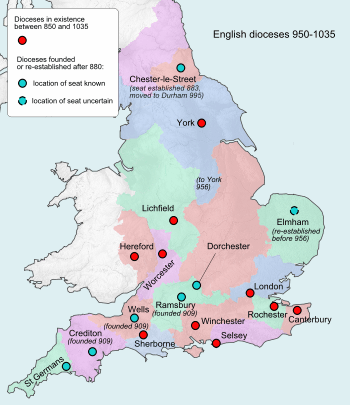
The Anglo-Saxon dioceses of Lindsey and Leicester were established when the large Diocese of Mercia was divided in the late 7th century into the bishoprics of Lichfield and Leicester (for Mercia itself), Worcester (for the Hwicce), Hereford (for the Magonsæte) and Lindsey (for the Lindisfaras).
The historic Bishop of Dorchester was a prelate who administered the Diocese of Dorchester in the Anglo-Saxon period. The bishop's seat, or cathedra, was at the cathedral in Dorchester-on-Thames in Oxfordshire.
In the 660s the seat at Dorchester-on-Thames was abandoned, but briefly in the late 670s it was once more a bishop's seat under Ætla, under Mercian control.[6] The town of Dorchester again became the seat of a bishop in around 875, when the Mercian Bishop of Leicester transferred his seat there. The diocese merged with that of Lindsey in 971; the bishop's seat was moved to Lincoln in 1072 and thus the Mercian Bishops of Dorchester were succeeded by the Bishops of Lincoln.
The first bishops of Leicester were originally prelates who administered an Anglo-Saxon diocese between the 7th and 9th centuries. The bishopric fell victim to the invasion by the Danes and the episcopal see was transferred to Dorchester-on-Thames in Oxfordshire.[7][8][9]
The dioceses of Lindsey and Leicester continued until the Danish Viking invasions and establishment of the Danelaw in the 9th century. The see of Leicester was transferred to Dorchester, now in Oxfordshire, sometime between 869 and 888. After an interruption, the see of Lindsey was resumed until it was united with the bishopric of Dorchester in the early 11th century. The diocese was the largest in England, extending from the River Thames to the Humber Estuary.
In 1072, Remigius de Fécamp moved the see of Dorchester to Lincoln, but the bishops of Lincoln retained significant landholdings within Oxfordshire. Because of this historic link, for a long time Banbury remained a "peculiar" of the Bishop of Lincoln.
Until the 1530s the bishops were in full communion with the Roman Catholic Church. During the English Reformation they changed their allegiance back and forth between the crown and the papacy. Under Henry VIII and Edward VI, the bishops conformed to the Church of England, but under Mary I they adhered to the Roman Catholic Church. Since the English Reformation, the bishops and diocese of Lincoln have been part of the reformed Church of England and the Anglican Communion.
The dioceses of Oxford and Peterborough were created in 1541 out of parts of the Diocese of Lincoln. The county of Leicestershire was transferred from Lincoln to Peterborough in 1837.
List of bishops of Lincoln
- For precursor offices, see Bishop of Lindsey, Bishop of Leicester and Bishop of Dorchester
Pre-Reformation bishops
| Bishops of Leicester | |||
|---|---|---|---|
| From | Until | Incumbent | Notes |
| 679 | c.691 | Cuthwine | |
| 692 | 705 | Wilfrid | Translated from York; later transferred to Hexham |
| 709 | c.716/727 | Headda | also Bishop of Lichfield |
| c.716/727 | 737 | Aldwine | also Bishop of Lichfield |
| 737 | 764 | Torhthelm | |
| 764 | c.781/785 | Eadbeorht | |
| c.781/785 | c.801/803 | Unwona | |
| c.801/803 | c.814/816 | Wernbeorht | |
| c.814/816 | 839 or 840 | Hræthhun | |
| 839 or 840 | c.840/844 | Ealdred | |
| c.840/844 | c.869/888 | Ceobred | |
| In the late 9th century, the episcopal see of Leicester was moved to Dorchester. | |||
| Source(s):[7][8][9][10] | |||
| Bishops of Dorchester | |||
| From | Until | Incumbent | Notes |
| betw. 869 x 888 | betw. 893 x 896 | Harlardus | Also recorded as Alhheard; Eahlheard. |
| betw. 893 x 900 | betw. 903 x 909 | Wigmund | or Wilferth |
| c. 909 | betw. 909 x 925 | Coenwulf | Also recorded as Kenulphus |
| betw. 909 x 925 | betw. 934 x 945 | Wynsige | |
| betw. 934 x 945 | betw. 949 x 950 | Æthelwold | |
| 949 or 950 | 971 | Oscytel | Also Archbishop of York (956–971). |
| 971 | betw. 971 x 975 | Leofwine | Bishop of Lindsey; united the sees of Dorchester and of Lindsey in 971, bishops of the united diocese known as Bishop of Dorchester |
| betw. 971 x 975 | betw. 975 x 979 | Alnothus | Also recorded as Alfnoth |
| betw. 975 x 979 | 23 April 1002 | Æscwig | Also recorded as Œswy; Ascwinus. |
| 1002 | betw. 1007 x 1009 | Ælfhelm | Also recorded as Alfhelmus. |
| betw. 1007 x 1009 | 18 October 1016 | Eadnoth (I.) | Also recorded as Eadnothus. Abbot of Ramsey; killed at the battle of Assandun. |
| 1016 | 8 December 1034 | Æthelric | Also recorded as Eadhericus; Brihtmær. |
| 1034 | 18/19 September 1049 | Eadnoth (II.) | Also recorded as Eadnothus. Bishop of Dorchester, Leicester, and Lindey. |
| 1049 | 14 September 1052 | Ulfus Normanus | Also recorded as Ulf. Royal priest; suspended at the Council of Vercelli 1050; expelled |
| 1053 | 1067 | Wulfwig | Also recorded as Wulfinus. Royal priest. |
| 1067 | 1072 | Remigius de Fécamp | Also recorded as Remigius de Feschamp. Moved the see to Lincoln |
| Source(s):[11][10][12] | |||
| Pre-Reformation Bishops of Lincoln [13][14][15] | |||
|---|---|---|---|
| From | Until | Incumbent | Notes |
| 1072 | 1092 | Remigius de Fécamp | Formerly Almoner of Fécamp, Normandy; consecrated Bishop of Dorchester (possibly in 1067); transferred the see from Dorchester to Lincoln in 1072; died in office 8 May 1092; also known as Remigius de Feschamp |
| 1093 | 1123 | Robert Bloet | Formerly Lord Chancellor 1092–1093; nominated bishop in March 1093 and consecrated before 22 February 1094; died in office 10 January 1123; also known as Robert Bluet |
| 1123 | 1148 | Alexander | Formerly Archdeacon of Salisbury; nominated bishop in April and consecrated 22 July 1123; died in office 20 February 1148 |
| 1148 | 1166 | Robert de Chesney | Elected bishop 13 December and consecrated 19 December 1148; died in office 27 December 1166; also known as Robert de Cheney alias Querceto |
| 1168 | 1173 | See vacant | |
| 1173 | 1182 | Geoffrey Plantagenet | Elected bishop circa May 1173 and confirmed before July 1175; resigned without being consecrated 6 January 1182; later became Archbishop of York in 1189 |
| 1183 | 1184 | Walter de Coutances | Formerly Archdeacon of Oxford; elected bishop 8 May and consecrated 3 July 1183; translated to Rouen in the summer of 1184; also known as Walter de Coutances, Walter of Coutances, or Walter of Rouen |
| 1184 | 1186 | See vacant | |
| 1186 | 1200 | Hugh of Avalon | Formerly Prior of Witham Charterhouse; elected bishop 25 May and consecrated 21 September 1186; installed at Lincoln Cathedral 29 September 1181; died in office 16 November 1200; canonised in 1220; also known as Saint Hugh of Lincoln |
| 1200 | 1203 | See vacant | |
| 1203 | 1206 | William de Blois | Formerly Prebendary of Lincoln; elected bishop before 6 July and consecrated 24 August 1203; died in office 10 Mau 1206 |
| 1206 | 1209 | See vacant | |
| 1209 | 1235 | Hugh of Wells | Formerly Archdeacon of Wells; elected bishop before 14 April and consecrated 20 December 1209; in exile until 1213 due to Pope Innocent III's interdict against King John's England; died in office 7 February 1235; also known as Hugh Troteman |
| 1235 | 1253 | Robert Grosseteste | Formerly Archdeacon of Leicester; elected bishop 25 March and consecrated 17 June 1235; died before 9 October 1253; also known as Robert Grosthead or Robert Grouthed |
| 1254 | 1258 | Henry of Lexington | Formerly Dean of Lincoln; elected bishop 21 or 30 December 1253 and consecrated 17 May 1254; died in office 8 August 1258 |
| 1258 | 1279 | Richard of Gravesend | Formerly Dean of Lincoln; elected bishop 21 or 23 September and consecrated 3 November 1258; died in office 18 December 1279; also known as Richard de Gravesend |
| 1280 | 1299 | Oliver Sutton | Formerly Dean of Lincoln; elected bishop 6 February and consecrated 19 May 1280; died in office 13 November 1299 |
| 1300 | 1320 | John Dalderby | Formerly Chancellor of Lincoln; elected bishop 15 January and consecrated 12 June 1300; died in office 12 January 1320; also known as John Aldberry or John d'Aldreby |
| 1320 | (Anthony Bek) | Elected bishop 3 February 1320, but was quashed later in the same year; became Bishop of Norwich in 1337 | |
| 1320 | 1340 | Henry Burghersh | Appointed 27 May and consecrated 20 July 1320; also was Lord Treasurer 1327–1328 and Lord Chancellor 1328–1330; died before 27 December 1340 |
| 1341 | 1347 | Thomas Bek | Elected bishop before 1 March 1341 and consecrated 7 July 1342; died in office 2 February 1347; also known as Thomas le Bec |
| 1347 | 1363 | John Gynwell | Formerly Archdeacon of Northampton; appointed bishop and consecrated 23 September 1342; died in office 5 August 1362; also known as John Gyndell, John Gyndwelle or John Sinwell |
| 1363 | 1398 | John Bokyngham | Formerly Keeper of the Privy Seal 1360–1363; elected bishop sometime between 20 August and 4 October 1362; appointed 5 April and consecrated 25 June 1363; resigned sometime between March and July 1398; died 10 March 1399; also known as John Buckingham |
| 1398 | 1404 | Henry Beaufort | Chancellor of the University of Oxford and Dean of Wells; appointed 27 February and consecrated 14 July 1398; also was Lord Chancellor; translated to Winchester 19 November 1404 where later created a Cardinal in 1426.[16] |
| 1404 | 1419 | Philip Repyngdon | Formerly Abbot of Leicester and Chancellor of the University of Oxford; appointed bishop 19 November 1404 and consecrated 29 March 1405; created a Cardinal 19 September 1408 but revoked in 1409; resigned 21 November 1419; died 1424; also known as Philip de Repingdon.[17] |
| 1420 | 1431 | Richard Fleming | Formerly a Canon of Lincoln; appointed 20 November 1419 and consecrated 28 April 1420; he was appointed archbishop of York 14 February 1424, but resigned the appointment 20 July 1425; continued as bishop of Lincoln until died 25 January 1431; also known as Richard Fleyming |
| 1431 | 1436 | William Grey | Translated from London; appointed 30 April 1431; died in office sometime between 10 and 18 February 1436; also known as William Gray |
| 1437 | 1450 | William Alnwick | Translated from Norwich; appointed 19 September 1437; died in office 5 December 1449; also known as William Alnewick |
| 1450 | Marmaduke Lumley | Translated from Carlisle; appointed 28 January 1450; died in office 1 December 1450 | |
| 1450 | 1452 | See vacant | |
| 1452 | 1472 | John Chadworth | Formerly Provost of King's College, Cambridge; elected bishop before 11 February 1451 and consecrated 18 June 1452; died 23 June 1471; also known as John Chedworth |
| 1472 | 1480 | Thomas Rotherham | Translated from Rochester; appointed 8 January 1472; also was Keeper of the Privy Seal and Lord Chancellor; translated to York 7 July 1480; also known as Thomas de Rotherham, or Thomas Scot |
| 1480 | 1494 | John Russell | Translated from Rochester; appointed 7 July 1480; died in office 30 December 1494 |
| 1495 | 1514 | William Smyth | Translated from Bishop of Coventry and Lichfield; appointed 6 November 1495; died in office 2 January 1514 |
| 1514 | 1515 | Thomas Wolsey | Formerly Dean of Lincoln 1509–1514 and York 1513–1514; appointed bishop of Lincoln 6 February and consecrated 26 March 1514; translated to archbishopric of York 15 September 1514 |
| 1514 | 1521 | William Atwater | Appointed 15 September and consecrated 12 November 1514; died in office 4 February 1521 |
Bishops during the Reformation
| Bishops of Lincoln during the Reformation [15][18][19] | |||
|---|---|---|---|
| From | Until | Incumbent | Notes |
| 1521 | 1547 | John Longland | Formerly Dean of Salisbury 1514–1521; appointed bishop 20 March and consecrated 5 May 1521; died in office 7 May 1547 |
| 1547 | 1551 | Henry Holbeach | Translated from Rochester; nominated 1 August and confirmed 20 August 1547; died in office 6 August 1551 |
| 1552 | 1554 | John Taylor | Nominated 18 June and consecrated 26 June 1552; deprived of the see 15 March 1554; died in December 1554 |
| 1554 | 1556 | John White | Nominated before 1 April 1554 and consecrated on that date; translated to Winchester 6 July 1556 |
| 1557 | 1559 | Thomas Watson | Nominated 7 December 1556; appointed 24 May and consecrated 15 August 1557; deprived of the see 26 June 1559; died in September 1584 |
Post-Reformation bishops
| Post-Reformation Bishops of Lincoln [19][20] | |||
|---|---|---|---|
| From | Until | Incumbent | Notes |
| 1560 | 1571 | Nicholas Bullingham | Nominated 25 November 1559 and consecrated 21 January 1560; translated to Worcester 26 January 1571 |
| 1571 | 1584 | Thomas Cooper | Nominated 15 January and consecrated 24 February 1571; translated to Winchester 23 March 1584 |
| 1584 | 1595 | William Wickham | Nominated 28 October and consecrated 6 December 1584; translated to Winchester 22 February 1595 |
| 1595 | 1608 |  William Chaderton William Chaderton |
Translated from Chester; nominated before 28 March and confirmed 24 May 1595; died in office 11 April 1608 |
| 1608 | 1613 | William Barlow | Translated from Rochester; elected bishop of Lincoln 21 May and confirmed 27 June 1608; died in office 7 September 1613 |
| 1614 | 1617 |  Richard Neile Richard Neile |
Translated from Lichfield; elected bishop of Lincoln 17 January and confirmed 18 February 1614; translated to Durham 9 October 1617 |
| 1617 | 1621 |  George Montaigne George Montaigne |
Elected bishop 21 October and consecrated 14 December 1617; translated to London 20 July 1621; also known as George Mountain |
| 1621 | 1641 |  John Williams John Williams |
Elected bishop 3 August and consecrated 11 November 1621; also was Lord Keeper 1621–1625 (the last cleric to hold the position); translated to York in December 1641 |
| 1641 | 1654 | Thomas Winniffe | Nominated 17 December 1641 and consecrated 6 February 1642; after November 1646, he retired to Lambourne; died 19 September 1654 |
| 1654 | 1660 | See vacant | |
| 1660 | 1663 | Robert Sanderson | Nominated 3 October and consecrated 28 October 1660; died in office 29 January 1663 |
| 1663 | 1667 |  Benjamin Lany Benjamin Lany |
Translated from Peterborough; nominated 20 February and consecrated 2 April 1663; translated to Ely 12 June 1667 |
| 1667 | 1675 | William Fuller | Translated from Limerick, Ardfert and Aghadoe; nominated 5 September and confirmed 27 September 1667; died in office 22 April 1675 |
| 1675 | 1691 | 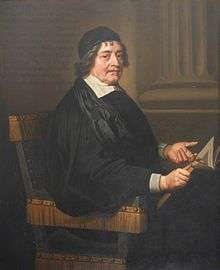 Thomas Barlow Thomas Barlow |
Nominated 1 May and consecrated 27 June 1675; died in office 8 October 1691 |
| 1691 | 1695 |  Thomas Tenison Thomas Tenison |
Nominated 27 October 1691 and consecrated 10 January 1692; translated to Canterbury 16 January 1695 |
| 1695 | 1705 | James Gardiner | Nominated 18 January and consecrated 10 March 1695; died in office 1 March 1705 |
| 1705 | 1716 | 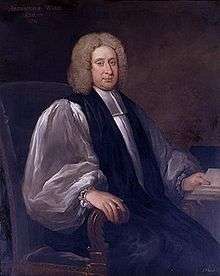 William Wake William Wake |
Nominated 16 July and consecrated 21 October 1705; translated to Canterbury 16 January 1716 |
| 1716 | 1723 | 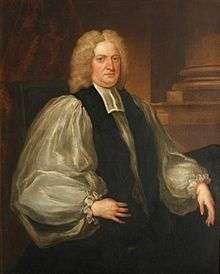 Edmund Gibson Edmund Gibson |
Nominated 17 December 1715 and consecrated 12 February 716; translated to London 4 May 1723 |
| 1723 | 1743 | Richard Reynolds | Translated from Bangor; nominated 16 May and confirmed 10 June 1723; died in office 15 January 1744 |
| 1744 | 1761 | John Thomas | Formerly Bishop-elect of St Asaph; nominated 20 January and consecrated 1 April 1744; translated to Salisbury 25 November 1761 |
| 1761 | 1779 | John Green | Nominated 28 November and consecrated 28 December 1761; died in office 25 April 1779 |
| 1779 | 1787 | Thomas Thurlow | Nominated 5 May and consecrated 30 May 1779; translated to Durham 19 February 1787 |
| 1787 | 1820 |  George Pretyman George Pretyman (later Pretyman Tomline) |
Nominated 19 February and consecrated 11 March 1787; changed his surname to Pretyman Tomline in June 1803; translated to Winchester 18 August 1820 |
| 1820 | 1827 | 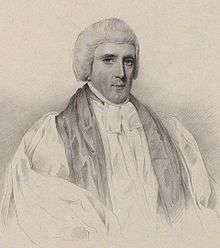 The Hon George Pelham The Hon George Pelham |
Translated from Exeter; nominated 18 August and confirmed 16 October 1820; died in office 7 February 1827 |
| 1827 | 1853 | 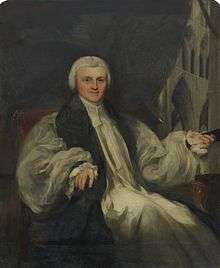 John Kaye John Kaye |
Translated from Bristol; nominated 12 February and confirmed 1 March 1827; died in office 19 February 1853 |
| 1853 | 1869 | 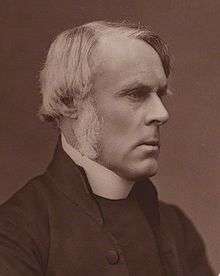 John Jackson John Jackson |
Nominated 18 March and consecrated 5 May 1853; translated to London 11 January 1869 |
| 1869 | 1885 |  Christopher Wordsworth Christopher Wordsworth |
Nominated 9 February and consecrated 24 February 1869; resigned in February 1885; died 20 March 1885 |
| 1885 | 1910 | 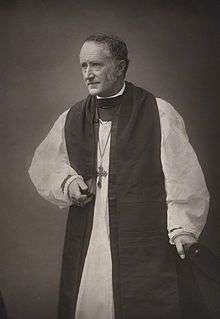 Edward King Edward King |
Nominated 5 March and consecrated 25 April 1885; died in office 8 March 1910 |
| 1910 | 1919 | Edward Hicks | Nominated 28 April and consecrated 24 June 1910; died in office 14 August 1919 |
| 1919 | 1932 | William Swayne | Nominated 26 November 1919 and consecrated 6 January 1920; resigned 14 November 1932; died 30 June 1941 |
| 1932 | 1942 | Nugent Hicks | Translated from Gibraltar; nominated 12 December 1932 and confirmed 15 February 1933; died in office 10 February 1942 |
| 1942 | 1946 | Alymer Skelton | Translated from Bedford; nominated 27 July and confirmed 27 August 1942; resigned 1 May 1946; died 30 August 1959 |
| 1946 | 1947 | Leslie Owen | Translated from Maidstone; nominated 12 June and confirmed 17 July 1946; died in office 2 March 1947 |
| 1947 | 1956 | Maurice Harland | Translated from Croydon; nominated 22 May and confirmed 11 July 1947; translated to Durham 7 July 1956 |
| 1956 | 1974 | Kenneth Riches | Translated from Dorchester; nominated 24 August and confirmed 26 September 1956; resigned 30 September 1974; died 15 May 1999.[21] |
| 1974 | 1986 | Simon Phipps | Translated from Horsham; nominated 7 October 1974 and confirmed 2 January 1975; retired in 1986; died 29 January 2001.[22][23] |
| 1987 | 2002 | Robert Hardy | Translated from Maidstone; nominated and confirmed in 1987; retired in 2002 |
| 2001/2 | 2011 | John Saxbee | Translated from Ludlow; nominated 4 September 2001,[24] election confirmed late December 2001/early January 2002[25] and installed at Lincoln Cathedral 23 March 2002; retired 2011[26] |
| 2011 | current | Christopher Lowson | former national Director of Ministry; enthroned 15 November 2011[5] |
References
- ↑ Debrett's Peerage, 1968, p.683; the infant Jesus appears to be shown here on the incorrect (sinister) arm (the dexter side in heraldry being generally of the greatest honour)
- ↑ "Lincoln Medieval Bishops' Palace". English Heritage. Retrieved 23 January 2012.
- ↑ "The Old Palace - Retreats and Quiet Days at the Edward King Centre". Retrieved 23 January 2012.
- ↑ "The Old Palace Hotel, Lincoln". Retrieved 23 January 2012.
- 1 2 "New Bishop Pledges Help for Parishes ; Enthronement of the Bishop of Lincolnthe Right Reverend Christopher Lowson Tells Ed Grover About His Most Pressing Priorities After Being Enthroned As the 72nd Bishop of Lincoln". Lincolnshire Echo. Lincoln, England: Northcliffe Newspapers. 17 November 2011. Retrieved 23 January 2012.
- ↑ Kirby Earliest English Kings p. 48-49
- 1 2 Leicester Cathedral: History Archived 25 January 2012 at the Wayback Machine.. Retrieved on 22 November 2008.
- 1 2 Fryde et al. 1986, Handbook of British Chronology, p. 238.
- 1 2 The Saxon Bishops of Leicester, Lindsey (Syddensis) , and Dorchester. By D. P. Kirby. Retrieved on 22 November 2008.
- 1 2 "Historical successions: Lincoln (including precussor offices)". Crockford's Clerical Directory. Retrieved 18 July 2012.
- ↑ "Historical successions: Dorchester". Crockford's Clerical Directory. Retrieved 18 July 2012.
- ↑ Fryde, E. B.; Greenway, D. E.; Porter, S.; Roy, I., eds. (1986). Handbook of British Chronology (3rd, reprinted 2003 ed.). Cambridge: Cambridge University Press. pp. 215 and 255. ISBN 0-521-56350-X.
- ↑ Fryde, E. B.; Greenway, D. E.; Porter, S.; Roy, I. (1986). Handbook of British Chronology (3rd ed.). Cambridge: Cambridge University Press. pp. 255–256. ISBN 0-521-56350-X.
- ↑ Greenway, Diana E. (1977). Fasti Ecclesiae Anglicanae 1066-1300. volume 3: Lincoln. pp. 1–5.
- 1 2 King, H.P.F. (1962). Fasti Ecclesiae Anglicanae 1300-1541. volume 1: Lincoln. pp. 1–3.
- ↑ Miranda, Salvador. "Henry Beaufort". The Cardinals of the Holy Roman Church. Retrieved 27 December 2009.
- ↑ Miranda, Salvador. "Philip Repington". The Cardinals of the Holy Roman Church. Retrieved 27 December 2009.
- ↑ Fryde, ibid., p. 256.
- 1 2 Horn, Joyce M.; Smith, David M. (1999). Fasti Ecclesiae Anglicanae 1541-1857. volume 9: Lincoln. pp. 1–5. ISBN 0-485-17128-7.
- ↑ Fryde, ibid., pp. 256–257.
- ↑ Alan Webster (19 May 1999). "Obituary: The Right Rev Kenneth Riches". The Independent. Retrieved 27 December 2009.
- ↑ Stephen Roberts (14 February 2001). "The Right Rev Simon Phipps". The Independent. Retrieved 27 December 2009.
- ↑ "The Right Reverend Simon Phipps". The Daily Telegraph. 14 February 2001. Retrieved 27 December 2009.
- ↑ "See of Lincoln". Number 10. 4 September 2001. Archived from the original on 12 January 2012. Retrieved 27 December 2009.
- ↑ The Diocese of Lincoln — The Bishop of Lincoln's Letter, February 2002 (Archived 4 February 2002; accessed 7 August 2016)
- ↑ Lincoln Diocese — Bishop signs off Archived 18 September 2011 at the Wayback Machine.
Sources
- Kirby, D. P. (2000). The Earliest English Kings. New York: Routledge. ISBN 0-415-24211-8.
